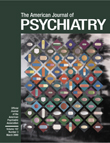Care of the Psyche: A History of Psychological Healing,
One of the interesting findings in clinical psychiatry in the past few years is that psychological interventions seem to be about as effective as any other means in treating many forms of mental illness. Neuropsychologists and the new brain science have begun to uncover how the brain “cures” itself through psychological intervention. The power of psychological treatment may well turn out to be the same power found in psychotropic medication.
Stanley Jackson, Emeritus Professor of Psychiatry and Medical History at Yale University and the dean of American historians of psychiatry, has now provided a comprehensive history of the models and forms of psychological treatment of mental illness in the West. No matter what the form of psychological intervention, whether Greco-Roman music therapy or psychoanalysis, all stand in the rather straight line of a noninvasive, productive response to the debilitating effects of whatever form of mental illness is defined in the society at any given moment. Whether or not we see the general clinical categories of mental illness as constant over history is not placed at the center of Jackson’s argument here. What is striking about his history is that he focuses on the treatments and not the diseases. Ancient melancholy may not be identical to nineteenth-century depression or late twentieth-century bipolar disorder. What is fascinating in Jackson’s narrative is that, although physicians respond to the illnesses as defined in their time and culture, their psychological approaches have a surprising continuity. The concept of the illness seems somewhat removed from the concept of healing. Psychological treatments are often defined in opposition to forms of somatic intervention, from the potions of the ancient pharmacopoeia, to the “vigorous” cures of the nineteenth and early twentieth centuries, to modern-day drug therapy.
Jackson’s project is a rather daunting one. How can one trace the basic theories and approaches so as to make some sense of the whole? He does this in an elegant and absolutely transparent way. His summaries of major theoreticians are succinct, and they provide material for his argument rather than standing alone as elaborate notes. He stresses the individual contribution of numerous physicians and thinkers, but it is clear that this is in no way a “great man” history of psychological healing. His study focuses on a basic theme: How have we imagined psychological healing over the past 3,000 years, and why does this tradition continue? His conclusion is quite direct: because it works! This is a necessary corrective to the sense of many psychiatrists that psychological healing became antiquated as soon as modern drug therapy became available. Good psychiatry has always consisted of using the full armament of therapies available at any given time. This Jackson elegantly illustrates. One hopes that many practitioners read his argument and take it not only as an elaboration of a historical truth but also as a statement of a basic fact about the treatment of the mentally ill in the past as well as today.



